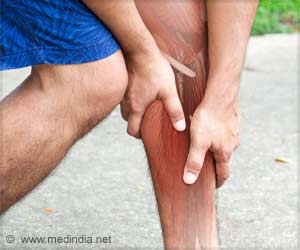World Voice Day falls on April 16 and the theme “Love Your Voice” stresses the need for caring for voice and preventing voice problems.
April 16, 2010
Voice—it's an important tool for communication, a valuable conduit of inspiration and entertainment and a source of income for professional users in different fields. Yet many of us take our voices for granted and fail to understand that Voice, like other functions of the human body is subject to wear and tear. World Voice Day is an annual health observance on April 16 to celebrate the human voice, stress the importance of vocal health and learning and maintaining healthy voice habits.The starting point for World Voice Day was the initiative of Brazilian doctors, Speech Language Pathologists (SLP), broadcasters and singing teachers belonging to the Brazilian Society of Laryngology and Voice who came together to declare April 16 as a day to focus on voice conservation and prevention of voice problems. In the United States, the American Academy of Otolaryngology became the official sponsor of the international program that came to be known as World Voice Day in 2002. The theme for this year is "Love Your Voice."
Understanding Voice Problems
A voice with a pitch that is too high or low, excessively low or soft, nasal or too hoarse accompanied by raspy breathing is an indication of a voice problem. Voice also needs attention when a person experiences pain or discomfort while talking or singing. Voice problems can be structure related such as caused by birth defects and functional abuse that is user related—such as voice abuse, misuse, overuse and sometimes psychological reasons. The human voice is a very fragile and sensitive instrument and can be damaged by tobacco use, laryngopharyngeal reflux brought on by poor dietary habits, respiratory dysfunction, neurologic dysfunction, and several other reasons.
The general public is very tolerant and get used to hearing impaired voices even from actors, broadcasters and politicians. Voice abnormalities or voice deterioration cannot be treated lightly because prolonged dysphonia could be an indication of serious conditions like larngygeal cancer.
Voice Abuse-Do’s and Don’ts
Any behavior such as screaming, incessant coughing, clearing the throat often, inhaling irritants, drinking alcohol, smoking, speaking in high or low pitches, poor dietary habits etc that strain or injure the vocal cords/larynx is known as vocal abuse. Excessive use of voice such as talking or singing for long hours without rest can damage the voice quality and even lead to loss of voice.
Do’s
• Sip water frequently throughout the day –about 8-10 glasses each day
• Rest your voice for a few minutes throughout the day
• Learn to use good posture and alignment while addressing an audience or singing
• Take a healthy diet of fruit and vegetables and avoid coffee, cheese, chocolates, spicy, oily, pungent and sour food
• See a Speech Pathologist or an ENT specialist when you detect a voice change
Don’ts
• Don’t clear your throat often and see a doctor for frequent cough
• Don’t yell scream, cheer or raise your voice often
• Don’t whisper or imitate voices often
• Don’t smoke or drink alcohol and sodas
• Don’t neglect gastro esophageal reflux disease (GERD) occurrence
Love Your Voice
Medical professionals dealing with Voice have used modern technology and taken voice management to a new level with advanced facilities to study vocal anatomy and physiology and diagnose and treat voice problems. Voices affected by allergy, asthma, sinus problems and similar respiratory problems, GERD, neurological problems can now be treated effectively to rectify voice problems. Voice Care team ideally comprising of an ENT doctor, a Speech-language Pathologist or speech therapist, and psychologists can help diagnose and treat voice problems.
Voice is a function that is most used but its care is often ignored. Voice health is important for all especially professional singers, preachers, lawyers and teachers who capitalize on their voice. World Voice Day is an attempt to sensitize the general public about the importance of voice health and to highlight the advances made in diagnosis and treatment of voice problems.
Source-Medindia
Thilaka Ravi/L










